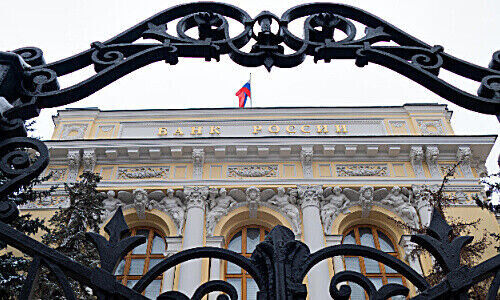There had long been speculation about how many reserves and assets the Central Bank of the Russian Federation has lying around in Switzerland. Now the Department of Economic Affairs has given a figure.
The Swiss Federal Council decided on March 29 to subject the reserves and assets of the Central Bank of the Russian Federation to a reporting requirement. The Federal Department of Economic Affairs, Education, and Research (EAER) is providing a number. A total of about 7.4 billion francs ($8.3 billion) are held by the National Bank of Russia in Switzerland.
According to the decision, persons, organizations, and entities that hold, control, or are counterparties to reserves and assets of the Central Bank of the Russian Federation had to report them to the State Secretariat for Economic Affairs (SECO) by April 12.
Immobile Since March 2022
These assets have been subject to restrictions since last spring, which Switzerland adopted from the EU as a result of Russia's invasion of Ukraine. Since March 25 of last year, any transactions related to the management of reserves and assets of the Central Bank of the Russian Federation are prohibited, making them «immobilized assets,» as the EAER writes.
Then there are the blocked funds and assets of sanctioned persons, companies, or organizations, which are to be distinguished from them, amounting to a further 7.5 billion francs.
Reporting on the assets of the Russian central bank is mandatory to be made on a regular quarterly basis.
Closely Followed Discussions
The statement refers to ongoing discussions in the EU on whether assets of the Central Bank of the Russian Federation should be used for investment and their proceeds used for the reconstruction of Ukraine. «Switzerland is following these discussions closely,» the ministry writes.
As part of a clarification on the blocked funds of sanctioned individuals and organizations from Russia, the Confederation's legal experts had come to a clear conclusion. According to them, the confiscation of private Russian assets violates the federal constitution as well as the applicable legal order and violates Switzerland's international obligations, as finews.com also.


































